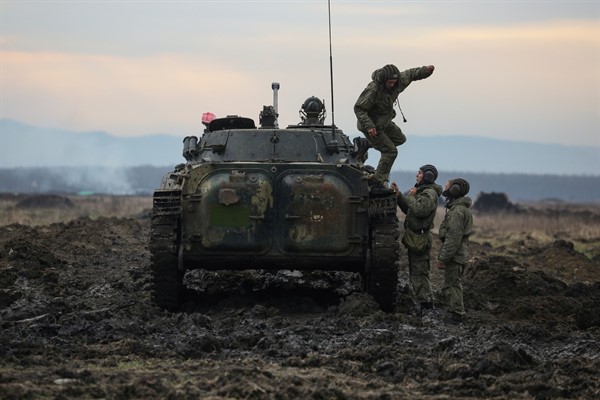The “Christmas surprise” invasion of Ukraine that some in Europe were expecting from Moscow did not eventually materialize, but Russian troops amassed near the two countries’ border have still not dispersed. This week, European capitals are trying to figure out what Russia’s intentions are.
Senior officials from Germany, France, Ukraine and Russia are today discussing the continued military buildup. Tomorrow, NATO foreign ministers will meet by video ahead of a summit between U.S. and Russian officials in Geneva next week. Given the continued standoff, the biggest question for Brussels remains whether to use a carrot or stick approach to convince Russia to scale back its full-court press of Ukraine.
Moscow has been eager to push its wider grievances to the forefront of the discussions, namely NATO’s seeming ever-eastward expansion and the still-open membership invitations extended by the alliance to Ukraine and Georgia. Moscow has long viewed this expansion as an attempt to encircle and weaken Russia. Many in Europe question why the NATO invitations to Georgia and Ukraine, made in 2008 during the final days of the George W. Bush administration, remain on the table—causing diplomatic problems even as the prospect of the two countries’ accession now seems remote. Many in Brussels and Western Europe believe the membership invitations needlessly antagonize Russia.

